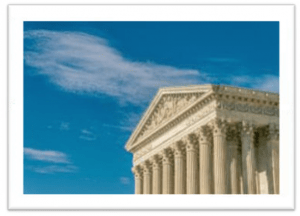- Home
- Blogs
- Investigations Insight
SEC disgorgement – It’s now or never
Browse this blog post
When is a penalty a “penalty,” and why does it matter? The question is whether SEC-mandated disgorgement of illicit profits is a “penalty” under the law, and the decision is Kokesh v. SEC. Why do we care? A “penalty” is subject to a five-year statute of limitations under 28 U.S.C. §2462. Per a unanimous panel, because disgorgement of illicit profits is a penalty under the law, the SEC can no longer request disgorgement for actions which accrued more than five years ago.
Why disgorgement?
 When the SEC was established in 1934, and charged with enforcing federal securities laws, it could only issue injunctions barring future violations of securities laws. With this limited mandate, the SEC regularly asked courts to order disgorgement of profits as a matter of equity, or fairness.
When the SEC was established in 1934, and charged with enforcing federal securities laws, it could only issue injunctions barring future violations of securities laws. With this limited mandate, the SEC regularly asked courts to order disgorgement of profits as a matter of equity, or fairness.
In 1990, the SEC was empowered to impose civil monetary penalties (CMPs), giving the SEC statutory authority to do what it had previously been trying to do through the equitable powers of the court. But formalizing the SEC’s power to impose penalties did not stop the SEC from requesting disgorgement of profits in addition to CMPs.
By way of example, the SEC sought a CMP, disgorgement and an injunction against Mr. Kokesh, a former investment advisor found to have misappropriated $34.9 million from the companies he was advising. Because the district court treated the CMP as a “penalty” and the disgorgement request as not a “penalty,” the CMP was reduced to the percentage attributable to the limitations period—five years—but the disgorgement was imposed in its entirety. Until now, this was the incongruous way Section 2462 was applied in the District of Columbia, First, and Tenth Circuits, but not the Eleventh, so disgorgement was limited to a five-year period in Atlanta, but not in Boston.
Why is it a penalty?
Now, the Supreme Court has held that disgorgement is a penalty subject to the five-year statute of limitations, for three reasons:
- First, a penalty is imposed to redress a wrong to the public. Disgorgement is a measure imposed as a consequence for violating public, penal laws; the violation is against the United States rather than an aggrieved individual. In fact, the SEC can bring a securities enforcement action without a victim.
- Second, a penalty is punitive in nature. The primary purpose of disgorgement is to deter others from similar violations by penalizing those that have committed them. As U.S. courts view deterrence as inherently punitive in nature, it follows that disgorgement must be, too.
- Third, a penalty is paid to the court, not as compensation to the victim. Disgorgement is paid to the court, which determines how and to whom the money will be distributed. While a court may try to steer some amount to the victims, it is not required.
Although the SEC argued that disgorgement was not punitive, but remedial, intended to restore the status quo prior to the violation, it failed to persuade the Court. Instead, the Court noted that disgorgement frequently puts the wrong-doer in a worse position than he had been in previously.
The weight of the arguments clearly classified disgorgement as a penalty, rendering it time-limited under Section 2462.
The Court’s decision in Kokesh increases the pressure on the SEC to root out securities violations and bring cases quickly, and reflects a trend of the Court reining in the SEC’s enforcement powers: In 2013, the Court unanimously ruled in Gabelli v. SEC that CMPs sought by the SEC are also subject to a five-year statute of limitations.
Be on the lookout for the Court to grant certiorari on the question of whether courts possess authority to order disgorgement in SEC enforcement proceedings at all. Justice Sotomayor raises the question in a footnote only to explain that the Kokesh decision would not address it.
For now, reset your clocks and start counting backwards.
This post was written with assistance from Eun Joo Hwang, a Summer Associate in Allen & Overy's New York office.
